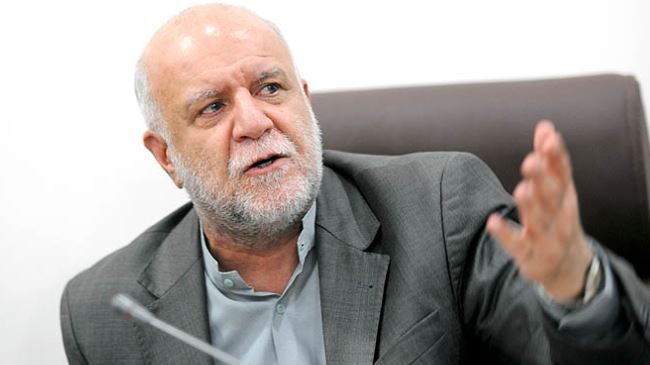August 19, 2016

The “Iran Petroleum Contract” (IPC) that was approved by the cabinet last year, but later withdrawn for changes, and that was then revised and approved by the cabinet two weeks ago has now been withdrawn again for some more changes, Oil Minister Bijan Namdar-Zanganeh announced Tuesday.
The decision to start the revision process all over again came as a result of a meeting with Majlis Speaker Ali Larijani and presumably reflects objections by Majlis deputies.
“Yesterday [Monday] afternoon, we had a meeting with Ali Larijani on the new oil contract in which some issues were raised. It was decided to make some amendments to the contract,” the oil minister said.
He gave no indications what kinds of changes were being planned, how many or how long they might take.
He did, however, say flatly that the IPC draft would not be sent to the Majlis for final approval. But he said that two weeks ago. Yet the Majlis Energy Committee did take up the contract and called in Zanganeh and his deputies in for a closed-door discussion about the contract last week. And now Zan-ganeh has said objections by the Majlis are leading to yet more revisions.
Meanwhile, the Oil Ministry now says it expects to issue its first new oil contracts to foreign developers by next Now Ruz, backing away from its previous insistence that it would issue contracts by October.
The October forecast was widely ridiculed as impractical, given that foreign firms still have not even seen the draft model contract and will need time to study it and draft their own proposals and bids.
In fact, the new forecast of contracts issued by Now Ruz may also be impractical as the Majlis subsequently scuttled the latest draft, as described above.
The cabinet approved the IPC August 3 and Oil Minister Zanganeh said that was the last required approval. But Deputy Asadollah Qarakhani of the Majlis Energy Committee contradicted Zanganeh. He said the committee took up the IPC, held a meeting last week with Zan-ganeh and his deputies, and would meet with them again in the future as the committee continues its review of the IPC.
Qarakhani said some deputies have concerns that the IPC as written may actually undermine Iran’s security and national authority, presumably by giving too much power to foreign firms working on Iranian oilfields.
Deputy Oil Minister Amir-Hossain Zamani-nia, who is in charge of dealing with foreign firms, said the signing of the first batch of new contracts would only happen near the end of the current Persian year on March 20.
He acknowledged that the current low price of oil creates “difficult conditions” for potential investors all around the world. “Nevertheless,” he said, “Iran’s oil projects are still attractive to international companies.”
Several international firms have indeed said that Iranian oilfields are attractive to them. The key point, they have said, is whether those fields will look as attractive after they have seen the IPC. Many have publicly complained about Iran’s previous contract model, the buy-back system, with many saying they lost money on deals they had signed with Iran under that system from 1995 until sanctions pushed them out of Iran in 2012.
Zamani-nia also acknowledged the role of the Majlis, saying he would be ready to move forward with the tender process “once the contract is confirmed by the Majlis,” which is not what Zanganeh said Tuesday.
All of this is pushing the first post-sanctions oil investments further into the future. Hardline critics are complaining that the nuclear deal has brought little benefit to Iran and point to the absence of any oil investment despite the deal. However, the delay in implementing the IPC is entirely caused by hardline critics of the IPC. As a result, some see the hardliners conspiring to shaft Iran’s economy, whose sluggishness they then blame on President Rohani.






















